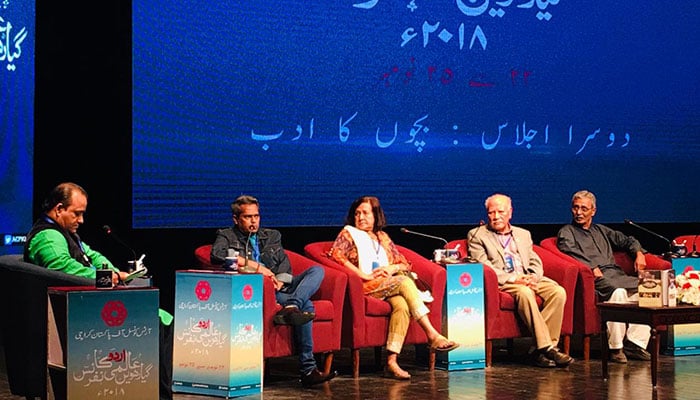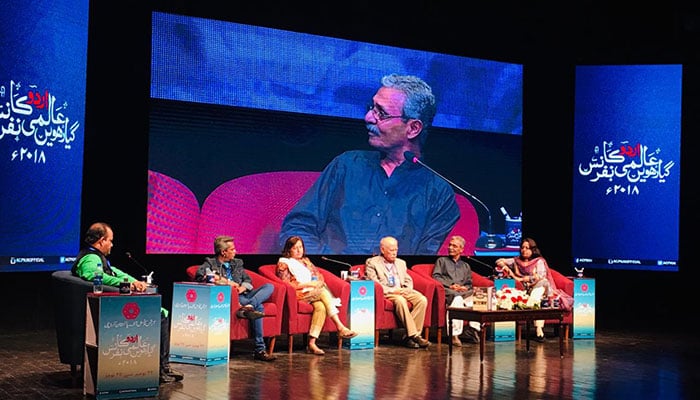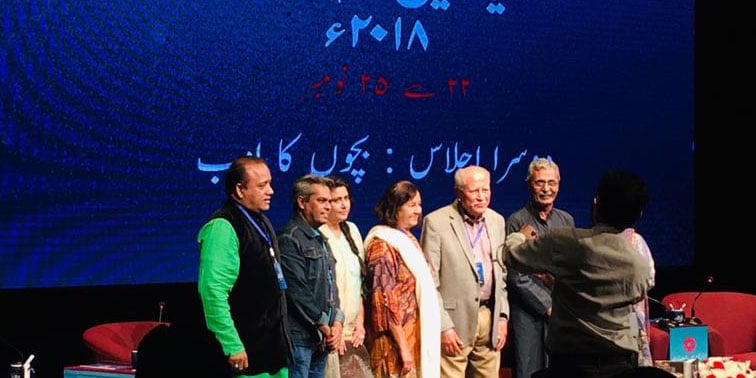Urdu Conference: A conversation on children's literature
The act of writing for children, as Urdu author Raza Ali Abidi, puts, is of pure worship. Taking this notion in mind, a few of the country’s most celebrated names in children’s literature came forth on Saturday stressing significance on the disciple at the 11th International Urdu Conference in Karachi.
The act of writing for children, as Urdu author Raza Ali Abidi puts, is of pure worship. Taking this notion in mind, a few of the country’s most celebrated names in children’s literature came forth on Saturday stressing significance on the subject at the 11th International Urdu Conference in Karachi.
As the event entered its second day, lauded writer and journalist Raza Ali Abidi underlined the worth of writers who dedicate their lives into nurturing the saplings of society, while also presenting some of his poetic works for children.
I have written 19 books for adults and I am proud to say that I have written 20 for children.
Steering the discussion forward, distinguished writer and former media consultant for UNICEF, Saleem Mughal highlighted how all invested efforts into children is what brings about change in the future.
Supporting his claim, he stated:
“There was a time in my student life when I used to stop by a book shop in Saddar and read some of the Chinese short stories for children that they had.”
He went on to recount: “I didn’t think much of them then but as times changed, I saw China surging and excelling throughout the world. That is when I went back and reread all of those tales for children and could prominently recognize that behind all the development that is now visible, are all the messages seeped deep into these ancient stories that are shaping minds of that nation at such a young age.”
Moreover, going into discourse about the evolving presence of children’s literature in society, author Ibn-e-Aas lauded the children’s publications like Aankh Macholi that encouraged them to come forward and submit their own written pieces, subsequently paving way for future writers.
While the late and acclaimed poet Fehmida Riaz’ untimely death led to an absence greatly felt at the panel discussion, her commitment and gusto laid out in the field kept her alive in the discourse and the hearts of the speakers as well as the audience with managing director of Oxford University Press, Ameena Saiyid remembering the late feminist poet:
There was a time I had requested her to translate a book by an American writer titled ‘The Snow Country Prince,’ and believe me when I read her translation of that book, I realized how much better it was than the original.
-
Security forces gun down 30 terrorists in multiple IBOs in KP: ISPR
-
MQM-P calls for new province in Sindh
-
US report validates Pakistan military edge over India: PM
-
Banned TTP poses serious threat to Pakistan security: UNSC panel
-
CM Afridi clarifies remarks on by-poll after ECP requests army deployment
-
Dubai sees 3.2m Pakistani passengers in 2025 as airport sets new milestone
-
Security forces kill 23 Indian proxy terrorists in KP's Kurram
-
Pakistan to construct island to boost oil exploration: report














